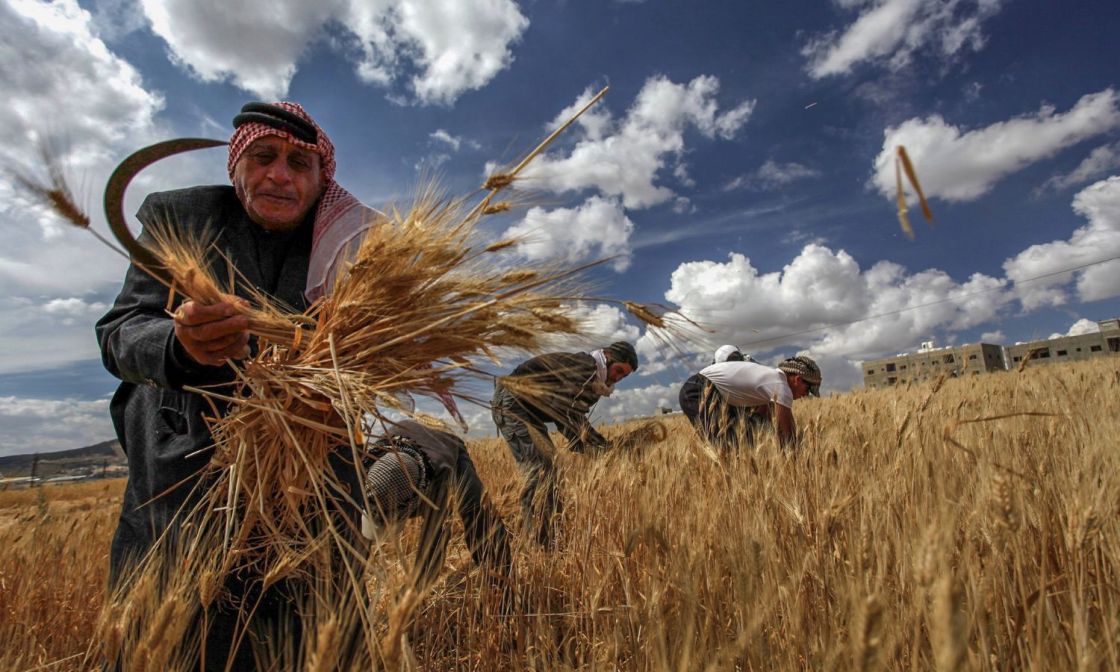- Editorials
- Posted
Kassioun Editorial 1215: What Identity Does Necessity Impose for the Syrian Economy?
The issue of the extremely difficult living conditions of more than 90% of Syrians is at the top of the list of national priorities. This is not only from a humanitarian and moral perspective, both of which are sufficient in themselves, but also from a patriotic perspective, civil peace preservation perspective, and the need to prevent harmful foreign interventions and ambitions of division and sabotage that are trying to enter through every possible loophole, and behind which stand multiple sides, mainly the warlords, the major corruption figures, and the “Israeli” enemy, which does not hide – with its usual impudence – its blatant intentions to work on dividing Syria.
The mission of saving the Syrian people from the scourge of poverty and hunger is an extremely urgent mission, and at the same time it is the main gateway to determining Syria’s future economic face in the strategic sense, that is, the identity, nature, and objectives of its economy.
The mandatory starting point for relaunching the national economy and then for reconstruction is the reality we are living, which was left to us by the fallen/fugitive president, Bashar al-Assad, achieving an important part of his slogan: “Assad or we burn the country”. He has indeed burned the country, but he was unable to kill it completely. Our mission, as Syrians, is to mend its wounds, restore its unity, and put it back on its feet, dignified and honorable.
Reality includes massive destruction of infrastructure and a significant shortage of skilled workers, a large portion of whom have been displaced, and only a small portion of whom have returned so far. It also includes extremely harsh Western sanctions, the most severe and criminal of which are the American sanctions, which have not yet been lifted, and it is not clear whether they will be lifted. In fact, the history of American sanctions on many countries teaches us that relying on their lifting anytime soon is nothing more than chasing a mirage and trying to catch wind.
Reality also includes a profitable state sector that has been deliberately made to lose in order to push it towards privatization, in accordance with the International Monetary Fund and World Bank formulas, and to transfer its ownership to the same corrupt bigwigs who besieged and weakened it. Reality also includes an unemployment rate that is perhaps the highest in the world, an unfair distribution of wealth that benefits less than 10% of the population, and huge steps taken towards economic liberalization and weakening the social role of the state in favor of big merchants and plunderers, at the expense of ordinary Syrians.
The relaunch of Syrian economy requires, first and foremost, restoring a single Syrian market. This is primarily a political matter and is achieved through understandings and agreements among Syrians. Data indicates that significant steps have been taken in this direction, and they should be completed as soon as possible.
Secondly, it requires securing resources for accumulation on the one hand, and raising the rate of return on the other, in order to secure growth figures that should not be less than 10-15% annually.
Thirdly, it requires a serious redistribution of wealth in favor of wage earners, because completing the production cycle necessarily requires increasing the consumption capacity of the Syrian people in general; to increase the consumption capacity, wealth must be redistributed.
Combining the coordinates of the existing reality and the three tasks that must be achieved is what objectively determines what identity the Syrian economy should have, and the concrete answer to the question of the country’s economic identity is key to determining the country’s political and social identity.
The main features of the economic identity can be summarized in the following:
First: An independent economy that is not subordinate to any state or international camp; rather, it benefits from international conflict and competition and from the existing multipolarity, to secure wide margins for movement dictated by the interests of the country and its people.
Second: The state should have a strong and clearly defined social role, at least by drawing on the European models of the 1970s and 1980s in the social welfare state.
Third: Our economy must achieve the deepest social justice and the highest growth, by primarily benefiting from local resources and wealth, especially those that carry absolute values, i.e., those that we can offer in a monopoly manner to the global market because they are unique properties that Syrian nature possesses and no one else does.
Fourth: Our economy should be based on agricultural-industrial complexes that maximize added value to the maximum possible extent, ensuring our self-sufficiency and the ability to move toward advanced heavy industries.
All these goals are achievable in light of the new international balance and in light of Syrians’ will and competencies, and the resources of their country. However, they require a clear and detailed agreement on the investment map in Syria, the role of the state within it, and the nature of relations with the outside world. These are issues that cannot be seriously embarked upon without a comprehensive political solution that ensures the unity of Syrian territory and the Syrian people.


